detail profile rashid masharawi

Rashid Masharawi
Rashid Mashrawi
atau dikenal sebagai
Riwayat Hidup
Rashid Masharawi (Arabic: رشيد مشهراوي; born 1962) is a Palestinian film director, born in Gaza in 1962 to a family of refugees from Jaffa.
He grew up in the Shati refugee camp.
Rashid Masharawi lives and works in Ramallah, where he founded the Cinema Production and Distribution Center in 1996 with the aim of promoting local film productions.
He also sponsors a mobile cinema, which allows him to screen films in Palestinian refugee camps.
Other projects include the annual Kids Film Festival and major workshops on film production and directing.
Rashid Masharawi regularly organises readings and discussion forums at the Al-Matal cultural centre.
Through his documentaries and feature films, he has made a name for himself as a film artist and has received several film awards.
Info Pribadi
Peran Yang Di Mainkan Rashid Masharawi
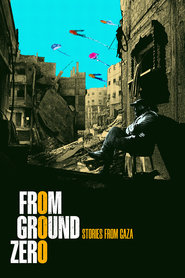 From Ground Zero is a compelling...
From Ground Zero is a compelling...From Ground Zero 2025
"From Ground Zero" is a compelling project that brings together 22 short films created by talented filmmakers from Gaza. Launched by Rashid Masharawi, a notable Palestinian filmmaker, the initiative emerged amid the backdrop of conflict, aiming to provide a platform for young artists to express themselves through their craft. Each film, ranging from 3 to 7 minutes, presents a unique perspective on the current reality in Gaza. The project captures the diverse experiences of life in the Palestinian enclave, including the challenges, tragedies, and moments of resilience faced by its people. With a mix of genres such as fiction, documentary, docu-fiction, animation, and experimental cinema, "From Ground Zero" showcases a rich tapestry of stories that reflect the sorrow, joy, and hope inherent in Gazan life.
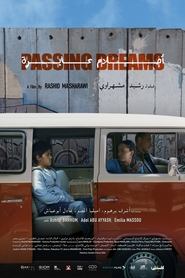 Sami 12 pursues an elusive carrier pigeon...
Sami 12 pursues an elusive carrier pigeon...Passing Dreams 2024
Sami, 12, pursues an elusive carrier pigeon across Palestine, which he assumes has returned to its homeland. What quest is really behind the invisible pigeon?
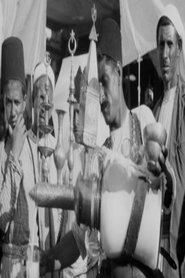 Rashid Marshawi takes us on a...
Rashid Marshawi takes us on a...Recovery 2021
Rashid Marshawi takes us on a special journey across the historical city of Jaffa, where his father was forced to leave in the 1948 exodus. With his own voice, Marshawi narrates his memories of the city, bringing to life the waves on Jaffa’s shore, the sounds of its streets, and the sweetness of its inhabitants and its spirit. Recovery is a splendid cinematic experience that attempts to cloud the border between time and space as Marshawi takes us on a tour of magnificent photos from 1930 to 1948, allowing his nostalgia to breathe a new life into the static bodies portrayed.
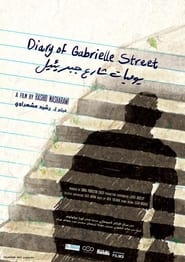 When the French authorities closed their...
When the French authorities closed their...Diary of Gabrielle Street 2021
When the French authorities closed their borders, landed their planes, confined their citizens to their homes, spreading the police on the streets. I was in Paris. Without any planning, the memory coming from Palestine began to flow and merge with the diaries I live here, and the virus began to awaken other viruses, which made me spontaneously, as a Palestinian citizen, besieged in the most beautiful Parisian neighbourhood (Montmartre), busy documenting aspects of diaries and memories in a period of time that changed the face of the scientist.
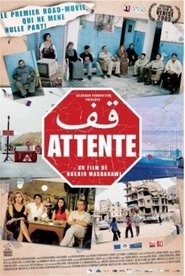 Before leaving to settle abroad Ahmad...
Before leaving to settle abroad Ahmad...Attentive 2005
Before leaving to settle abroad, Ahmad accepts one last job. He must audition actors for the new National Palestinian Theatre. On the road with interviewer Bissan and her cameraman Loumir, Ahmad goes in search of talent in the numerous refugee camps of Jordan, Syria and Lebanon. Hopefully for the last time, Ahmad experiences the insurmountable difficulties of life in Palestine: harassing searches at check points and borders, barricades, constant tension. He realizes the destiny of all waiting refugees is much the same as his own. He ends up guiding the auditioning actors into dramatizing what best embodies their destiny. But with the chance to catch his plane at risk, Ahmad could see the opportunity for his long-awaited exile slip away.
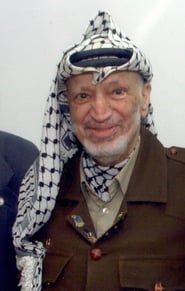 In November 2004 Yasser Arafat died He...
In November 2004 Yasser Arafat died He...Arafat, My Brother 2005
In November 2004, Yasser Arafat died. He had been leader of the PLO since 1969 and president of the Palestinian Authority since 1993. His younger brother, Dr Fathi Arafat, died soon after of cancer. Driven by despondency about the endless violence and the continuing uncertainty about the future of his people, the well-known Palestinian film maker Rashid Masharawi started working on a documentary 18 months earlier, in which he follows Dr Fathi Arafat and travels from Cairo to Paris, via Ramallah and Lebanon, tackling endless closed borders and roadblocks.
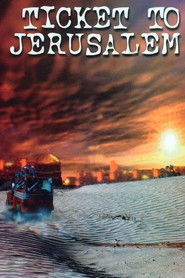 This inspired hybrid of documentary and...
This inspired hybrid of documentary and...Ticket to Jerusalem 2002
This inspired hybrid of documentary and fiction follows Jabir, who runs a mobile cinema from his old truck throughout the West Bank while his wife works to bring emergency medical care to Palestinians. When Jabir is invited by a spirited schoolteacher to make a screening in the old city of Jerusalem, he becomes obsessed with the idea of this pilgrimage and begins to investigate the possibilities.
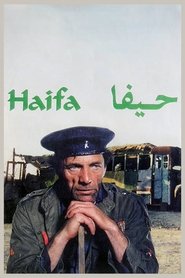 Haifa nicknamed after the city of...
Haifa nicknamed after the city of...Haifa 1995
Haifa, nicknamed after the city of his love and hope, goes around and comes around in a Palestinian refugee camp. Although he is everybody's fool, there are many things that only he knows. He is closely related to the family of Abu Said, a former policeman who gains new hopes from the political developments. Oum Said, his wife, hangs her hope on the imminent release of their eldest son, Said, from jail. She tries to find him a bride to secure things for the future. Their youngest son, Siad, is cynical and rebellious. He refuses to believe things. Sabah, the 12 year old daughter is romancing the future and wants to find out what's in it for her. The different stories are interwoven into a very timely insight into the current Palestinian mind.
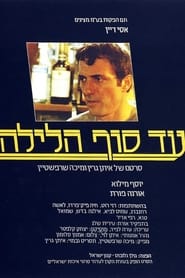 Giora Assi Dayan runs a bar...
Giora Assi Dayan runs a bar...When Night Falls 1985
Giora (Assi Dayan) runs a bar and dreams of opening a restaurant. He has made a mess of his life — his marriage is in trouble, since he is pathologically cheating on his wife; his parents (Yosef Millo and Orna Porat) have separated; and his father arrives for an extended visit from Nahariya. Giora spends time with his army buddies, recalling their experiences during the War in Lebanon. His father is undergoing a major life crisis and finds both the loneliness of the city and his son's lifestyle unappealing. As a non-Jew in a Jewish society, he feels estranged, an outsider who has never been able to adapt, and contemplates suicide. Eventually, Giora's parents decide to attempt a reconciliation, until tragedy strikes.
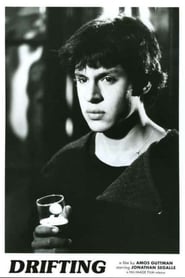 Robi is a young Israeli who...
Robi is a young Israeli who...Drifting 1983
Robi is a young Israeli who lives his grandparents and works at their store. He dreams of finding true love and becoming a movie director, both of which seem increasingly difficult. His film career stalls, until he can get financial backing and his love life seems to be in similar shape. While the urban city has places to cruise for sex, Robi struggles to find an organized gay community and a committed relationship.
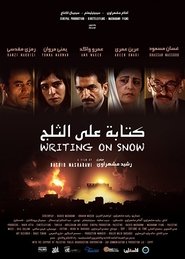 The film discusses different ideologies in...
The film discusses different ideologies in...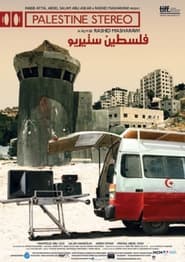 After an Israeli raid causes the...
After an Israeli raid causes the...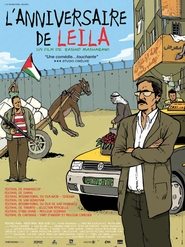 As Abu Laila is forced to...
As Abu Laila is forced to...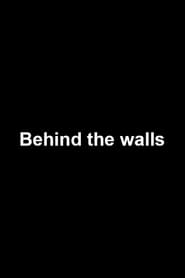
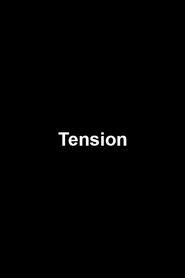
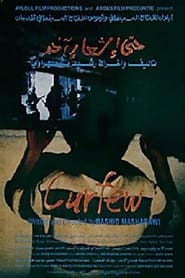 This drama portrays a day in...
This drama portrays a day in...